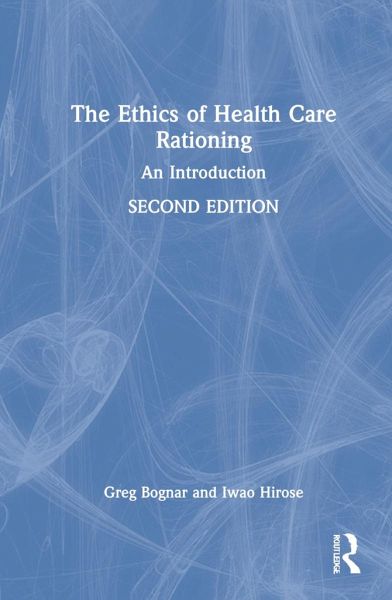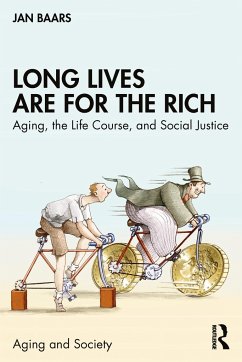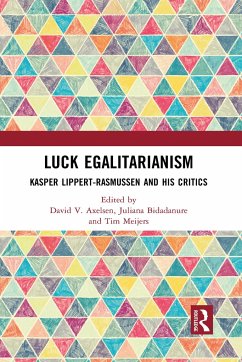
The Ethics of Health Care Rationing
An Introduction
Versandkostenfrei!
Versandfertig in 6-10 Tagen
154,99 €
inkl. MwSt.
Weitere Ausgaben:

PAYBACK Punkte
77 °P sammeln!
The rationing of health care is universal and inevitable, taking place in both poor and affluent countries, in publicly funded and private health care systems. Someone must budget for as well as dispense health care whilst aging populations severely stretch the availability of resources.The Ethics of Health Care Rationing is a clear, timely, and much-needed introduction to this important topic. Substantially revised and updated, this second edition includes new chapters on disability discrimination and age discrimination, and on the price of drugs and medical therapies. Beginning with a helpfu...
The rationing of health care is universal and inevitable, taking place in both poor and affluent countries, in publicly funded and private health care systems. Someone must budget for as well as dispense health care whilst aging populations severely stretch the availability of resources.
The Ethics of Health Care Rationing is a clear, timely, and much-needed introduction to this important topic. Substantially revised and updated, this second edition includes new chapters on disability discrimination and age discrimination, and on the price of drugs and medical therapies. Beginning with a helpful overview of why rationing is an ethical problem, the authors examine the following key topics:
What sort of distributive principles should we rely on when thinking about health care rationing? What is the relation between ethics and cost-effectiveness in health care?How should we think about controversies surrounding discrimination over disability and age? How should we approach controversies surrounding rationing and the price of pharmaceutical drugs and medical therapies? Should patients be held responsible for their health? Why does the debate on responsibility for health lead to issues about socioeconomic status and social inequality?
Throughout the book, examples from the United States, the United Kingdom, and other countries are used to illustrate the ethical issues at stake. Additional features such as chapter summaries, annotated further reading, and discussion questions have also been updated, making this an ideal starting point for students new to the subject, not only in philosophy but also in closely related fields such as politics, health economics, public health, medicine, nursing and social work.
The Ethics of Health Care Rationing is a clear, timely, and much-needed introduction to this important topic. Substantially revised and updated, this second edition includes new chapters on disability discrimination and age discrimination, and on the price of drugs and medical therapies. Beginning with a helpful overview of why rationing is an ethical problem, the authors examine the following key topics:
What sort of distributive principles should we rely on when thinking about health care rationing? What is the relation between ethics and cost-effectiveness in health care?How should we think about controversies surrounding discrimination over disability and age? How should we approach controversies surrounding rationing and the price of pharmaceutical drugs and medical therapies? Should patients be held responsible for their health? Why does the debate on responsibility for health lead to issues about socioeconomic status and social inequality?
Throughout the book, examples from the United States, the United Kingdom, and other countries are used to illustrate the ethical issues at stake. Additional features such as chapter summaries, annotated further reading, and discussion questions have also been updated, making this an ideal starting point for students new to the subject, not only in philosophy but also in closely related fields such as politics, health economics, public health, medicine, nursing and social work.













